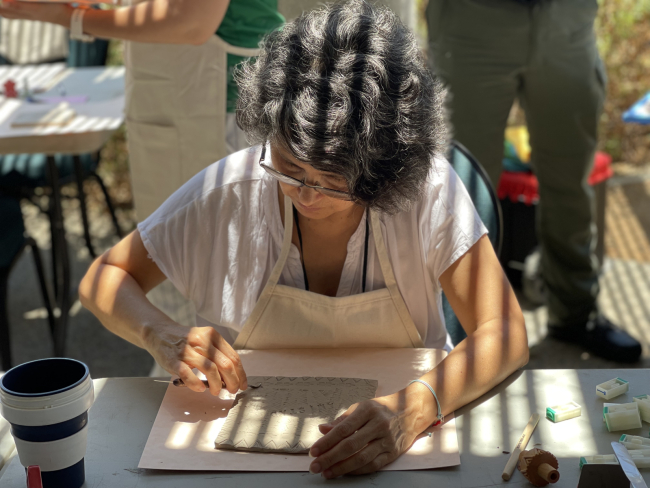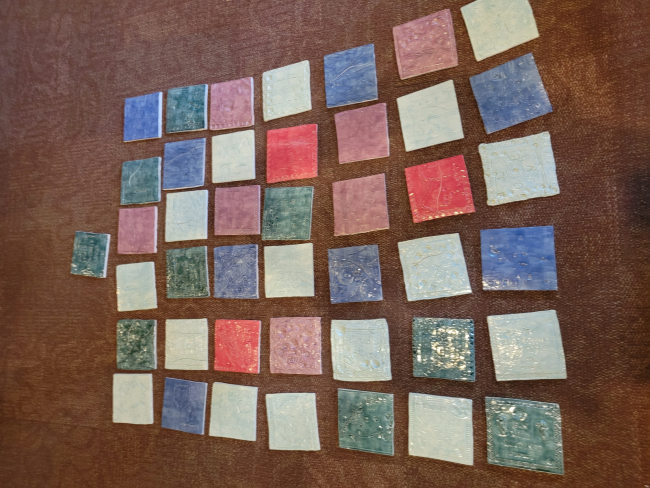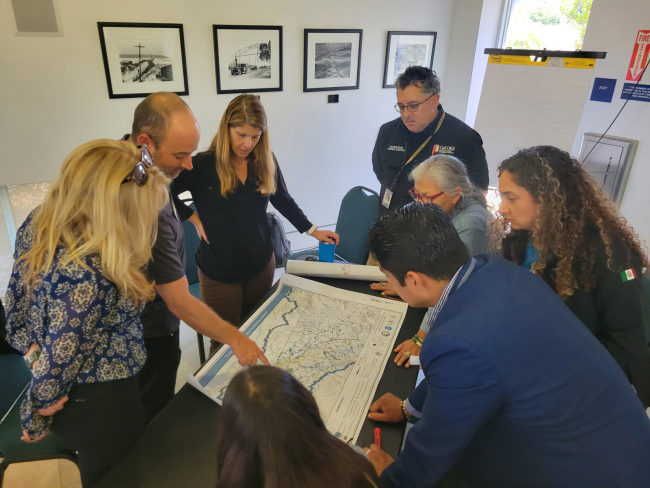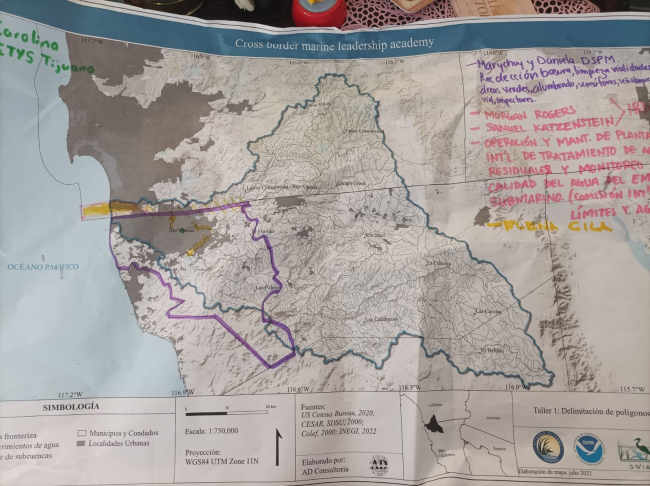Guest blog by: Megan Spitzer and Empress Holliday, Tijuana River National Estuarine Research Reserve
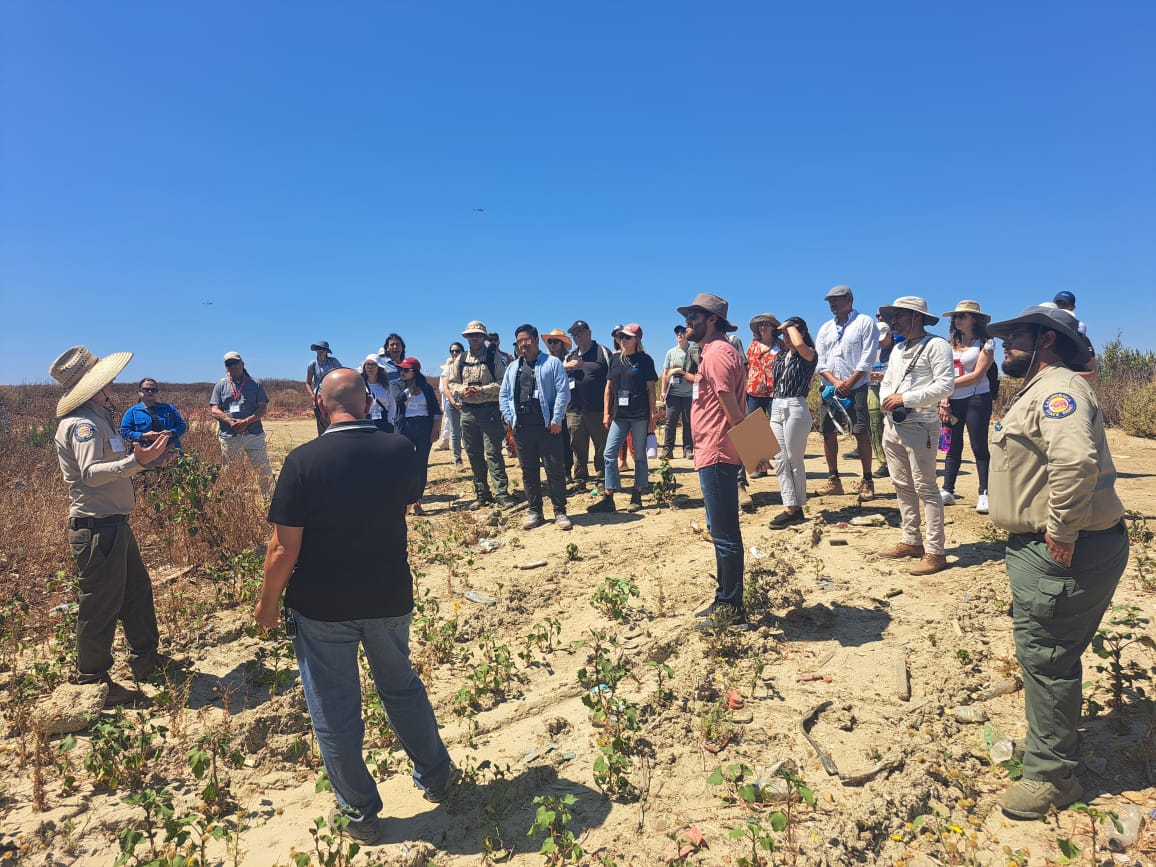
Addressing marine debris can be a challenge due to the complexity of both its origin and its impacts. This is especially true in the Tijuana River Watershed where three nations - United States, Mexico, and the Kumeyaay - are divided by an international border. As one of the last intact coastal wetlands in southern California, the ecosystem and surrounding communities face many threats, such as growing urban areas and excessive sediment and flooding. Flooding combined with solid waste and marine debris causes hazards, land pollution, and a cross-border, social-ecological dilemma. Solid waste pollution solutions require tri-national cooperation that incorporates cross-border cultural, language, political, and economic complexities into a transformative approach for addressing marine debris.
Located in Imperial Beach, California, the Tijuana River National Estuarine Research Reserve (TRNERR) sees these challenges as opportunities to utilize trinational collaboration in addressing the social-ecological impacts of marine debris. With support from the National Oceanic and Atmospheric Administration Marine Debris Program (NOAA MDP) provided through the United States-Mexico-Canada Agreement Implementation Act, the ResiDUOS project was created to collaboratively develop a community-driven circular economy pilot project, capture and characterize trash, remove debris in critical natural habitats, and develop a binational emergency response guide to flooding. This effort is the first of its kind to establish a community of transboundary experts and leaders on the topic and it represents ten years of investments and partnership with NOAA MDP.
The ResiDUOS project specifically highlights the need for a type of adaptive leadership that integrates spanning boundaries and fosters relationships to nurture change. From this need, the
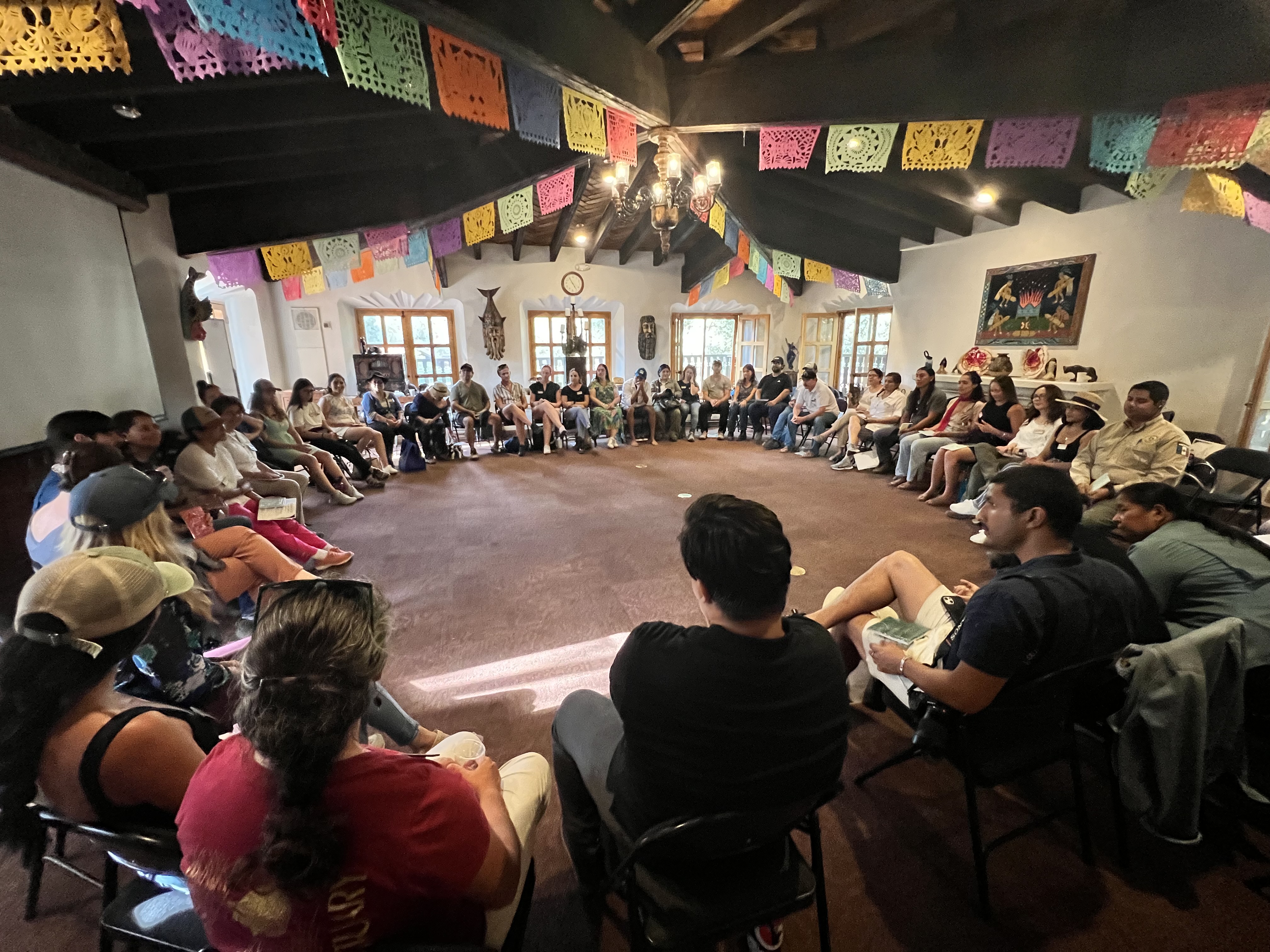
Marine Debris Leadership Academy (MDLA) was created as an eight-week program that brought together the inaugural cohort of 40 local leaders with diverse knowledge and expertise from the United States and Mexico in the summer of 2023. The MDLA was representative of local and federal governments, academia, nonprofit, and community organizations.
The MDLA used multiple learning methods to expand participant knowledge, sharing practical knowledge, involving participants in field experiences, and creating art. Participants learned practical knowledge, how to address technical issues, and practiced relationship building strategies by engaging in training on multicultural leadership and conflict resolution. The MDLA also incorporated experiential learning in the field, allowing participants to visit trash hotspots in both countries, explore the upper watershed, and speak with officials that were engaged with solid waste management. The academy also encouraged participants to explore their relationship with marine debris through an art collaboration with the Breathline Project.
Notably, participants completed the National Conflict Resolution Center’s training to develop leadership, conflict resolution, and diplomacy skills as well as NOAA Digital Coast’s Fostering Behavior Change in Coastal Communities. Through mapping exercises, they directly informed other aspects of the ResiDUOS project, such as the development of a Binational Emergency Response Guide. The interest in developing a binational guide was established after a flooding event in Matadero Canyon, Tijuana in 2020 where over 300,000 cubic meters of water pooled in the canyon due to marine debris blockages. The Binational Emergency Response Guide will help community members further understand local, state, and federal response structures needed to facilitate a coordinated, well-managed, and immediate response to debris blockage incidents that can cause flooding and affect vulnerable locations.
Overall, we had 99 unique MDLA participants that shared with us, learned alongside us, and nurtured hope for addressing marine debris in the future. Participants expressed that the emerging MDLA partnerships will continue to be nurtured and play an important role in maintaining stamina in tackling the solid waste and marine debris issues in the Tijuana River watershed, including through Tijuana River Action Month and the San Diego Foundation’s Binational Resilience Initiative. The commitment to each other however, is the most palpable; MDLA participants continue to meet monthly to collaborate on a shared vision for marine debris action. Out of all evaluated participants, 95% reported that they learned something of value and that they intend to apply their expanded knowledge to future decisions. Participants stated:
“I've met some inspiring people. It's great to have made connections.”
“I met with many leaders in binational marine debris issues, and people who are passionate about change.”
“I feel I better understand the stakeholders and their involvement in this watershed, which will be good going forward.”
“Every single [piece of] information we learned was very valuable. We will be implementing all this knowledge into our education program.”
“I now fully understand the severity of the problem as well as potential solutions.”
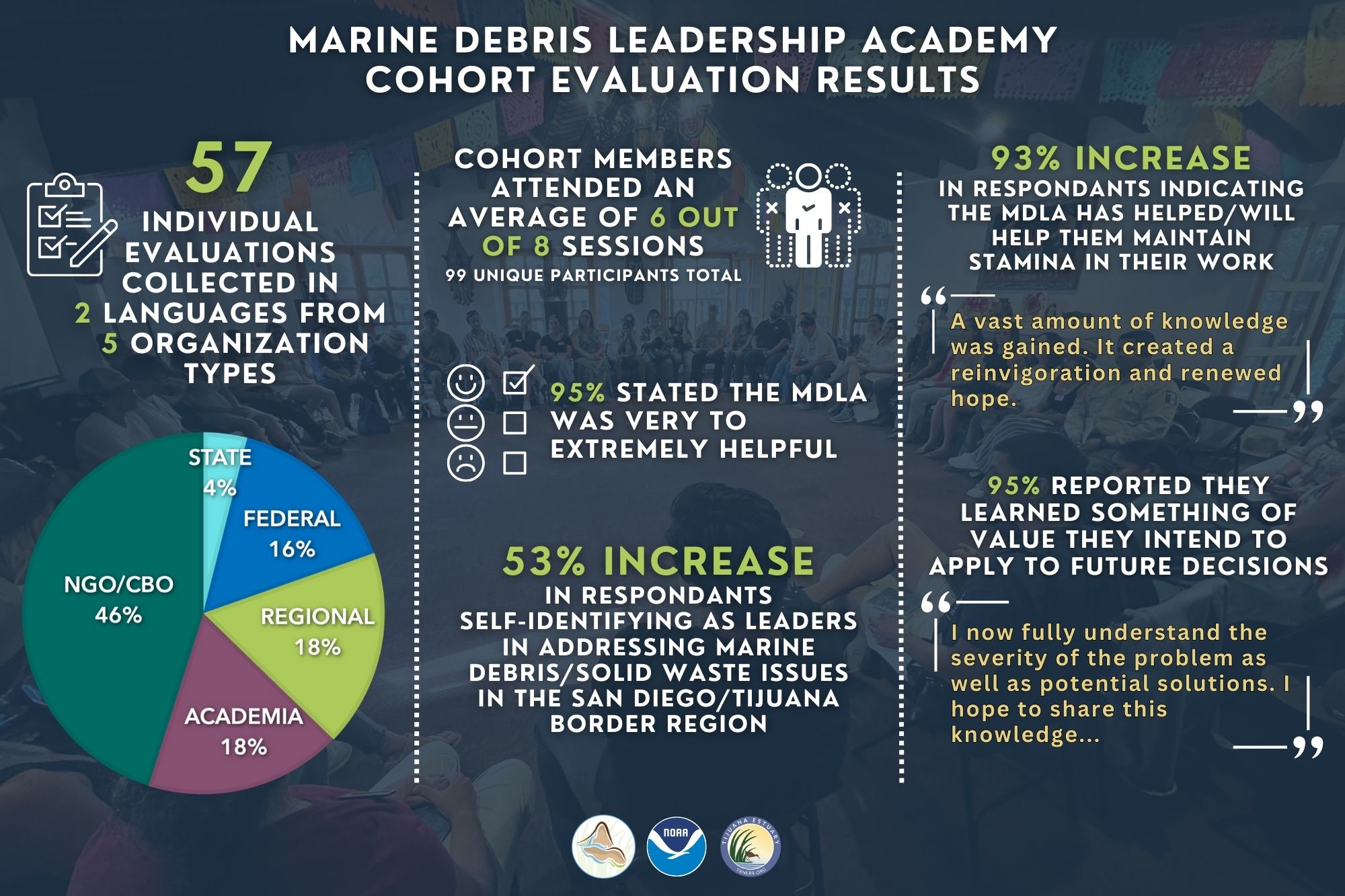
To learn more about MDLA’s purpose, weekly themes, and to take a virtual tour, please utilize this ArcGIS Storymap. Also, you can follow the ResiDUOS on Instagram @proyecto_residuos and TRNERR on Instagram @tijuanaestuary.

